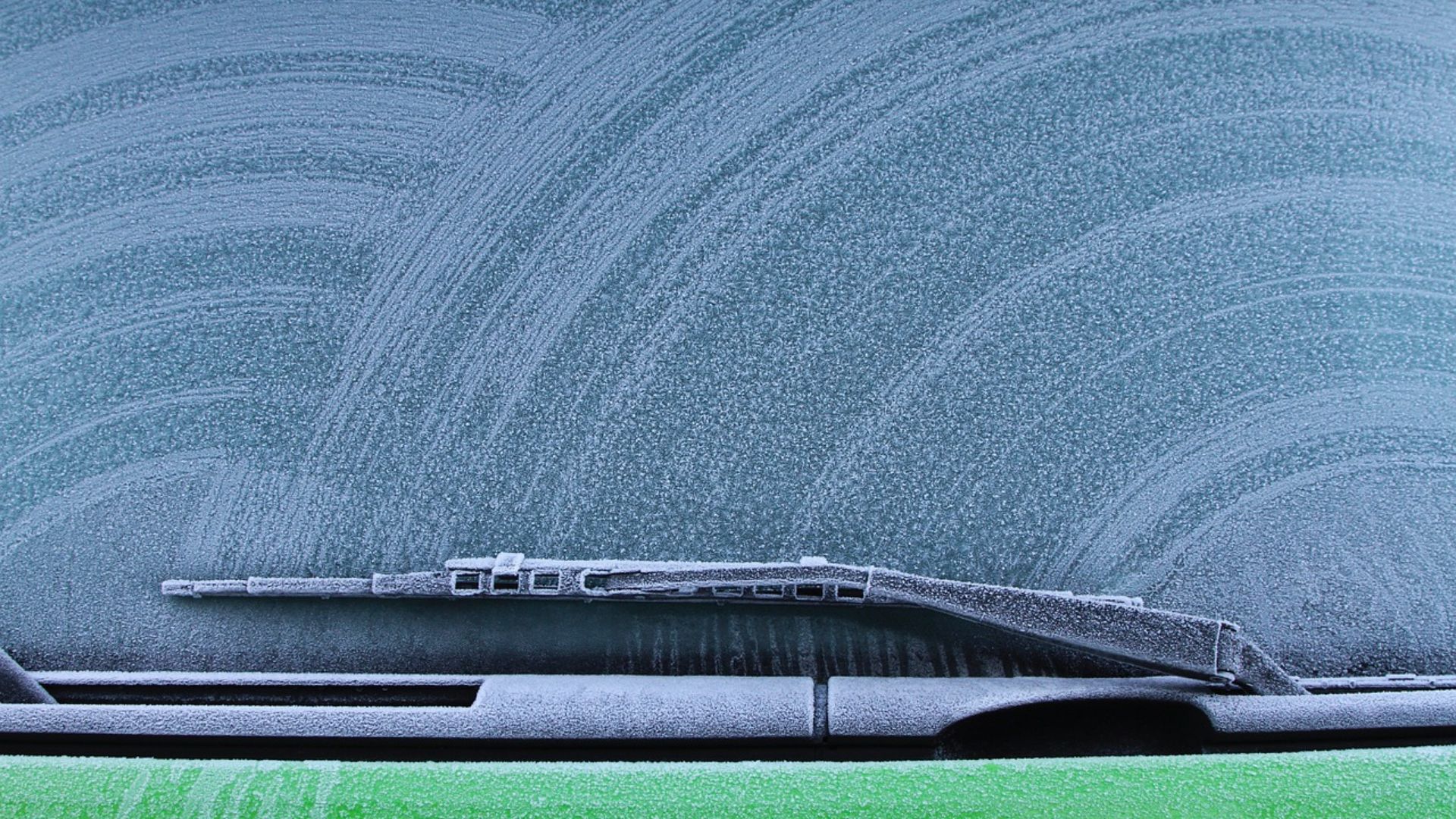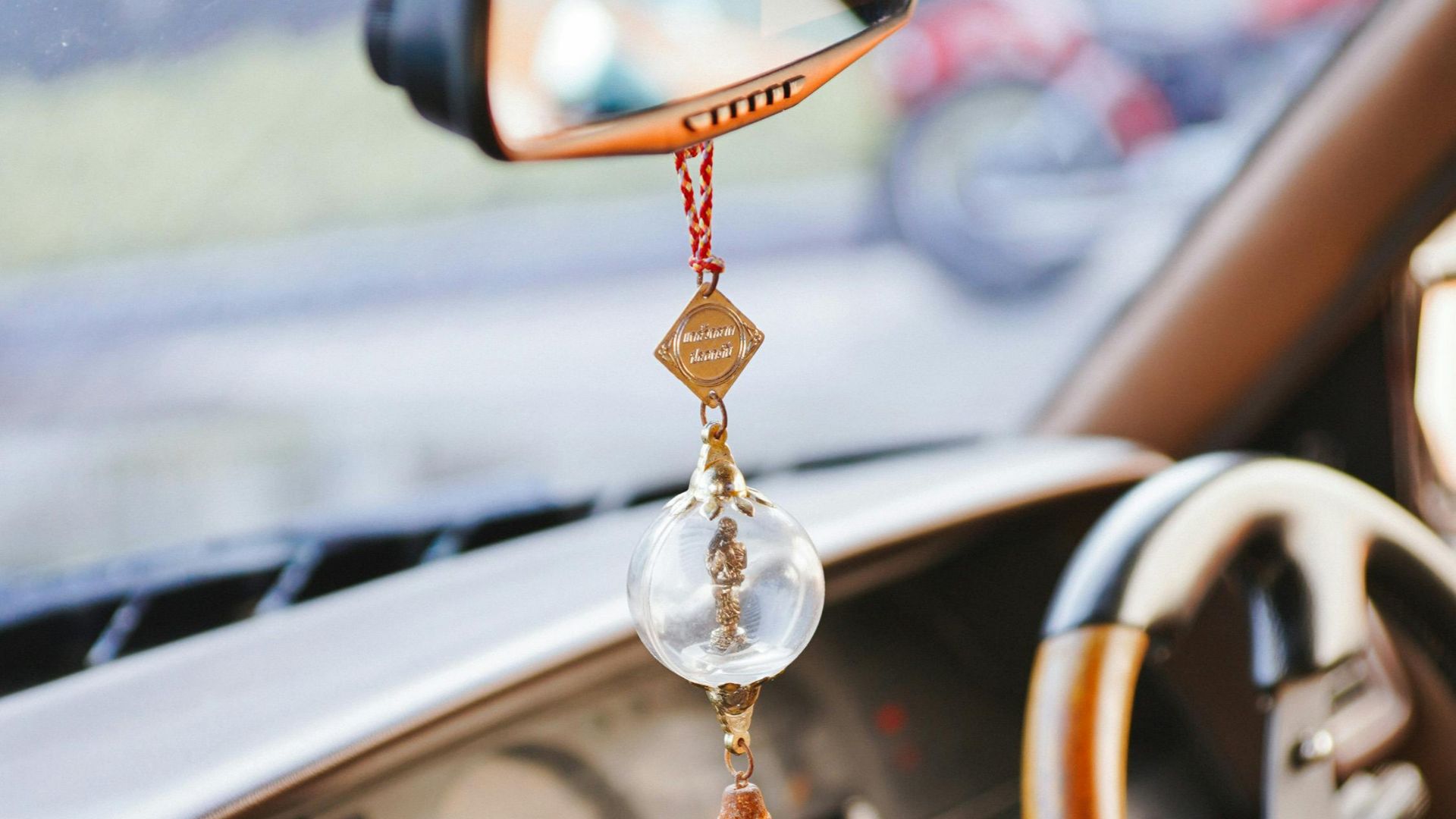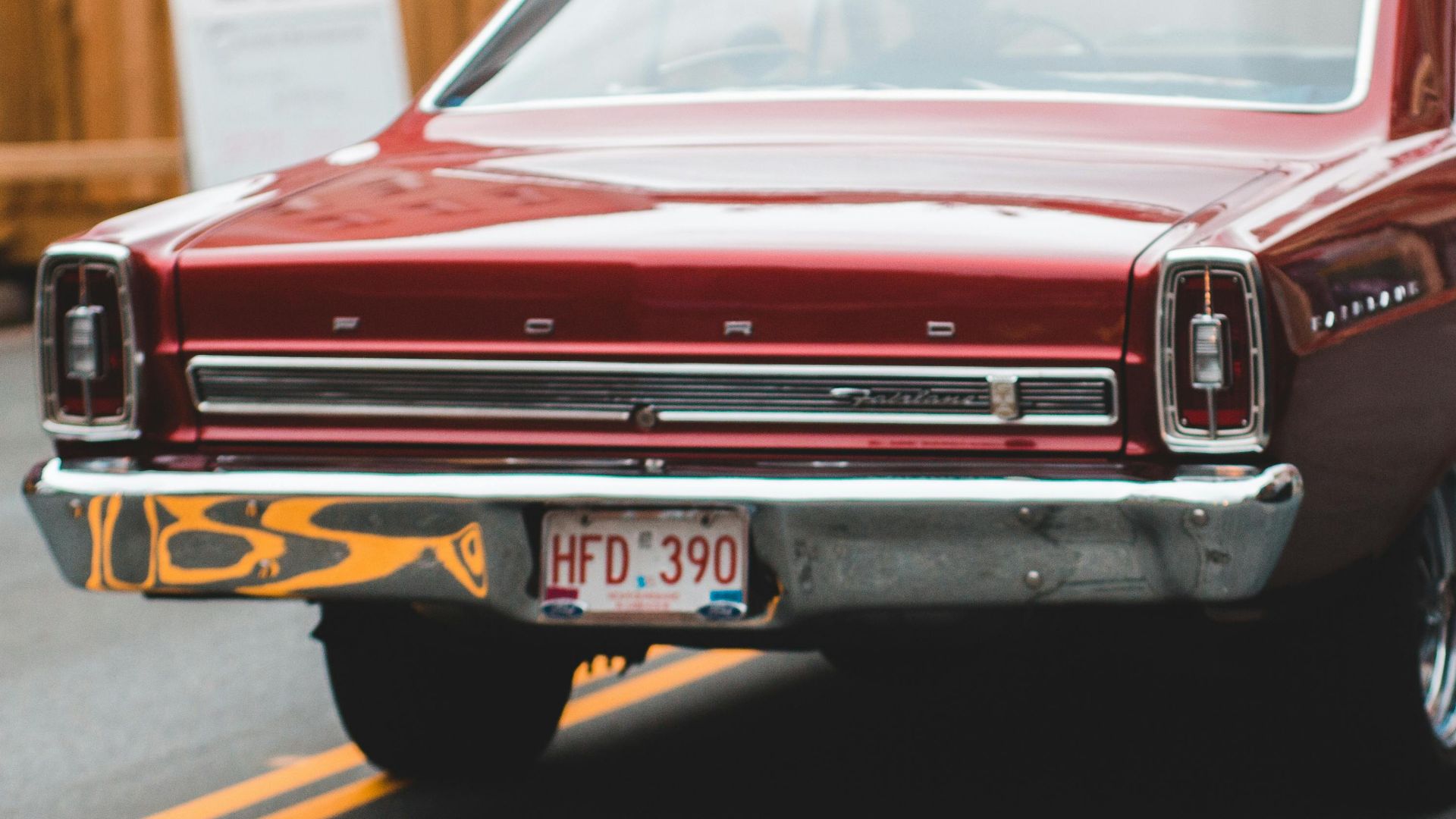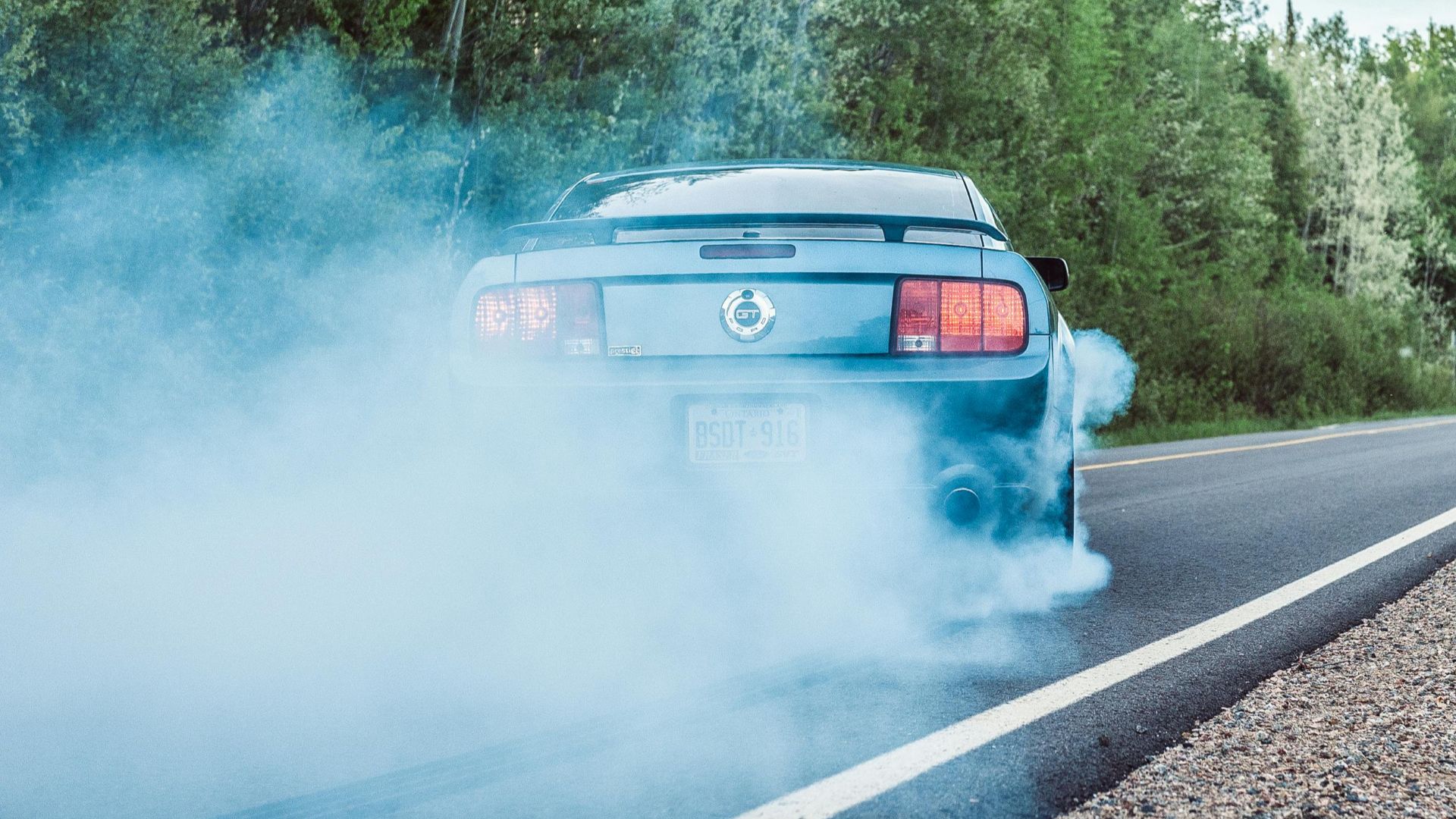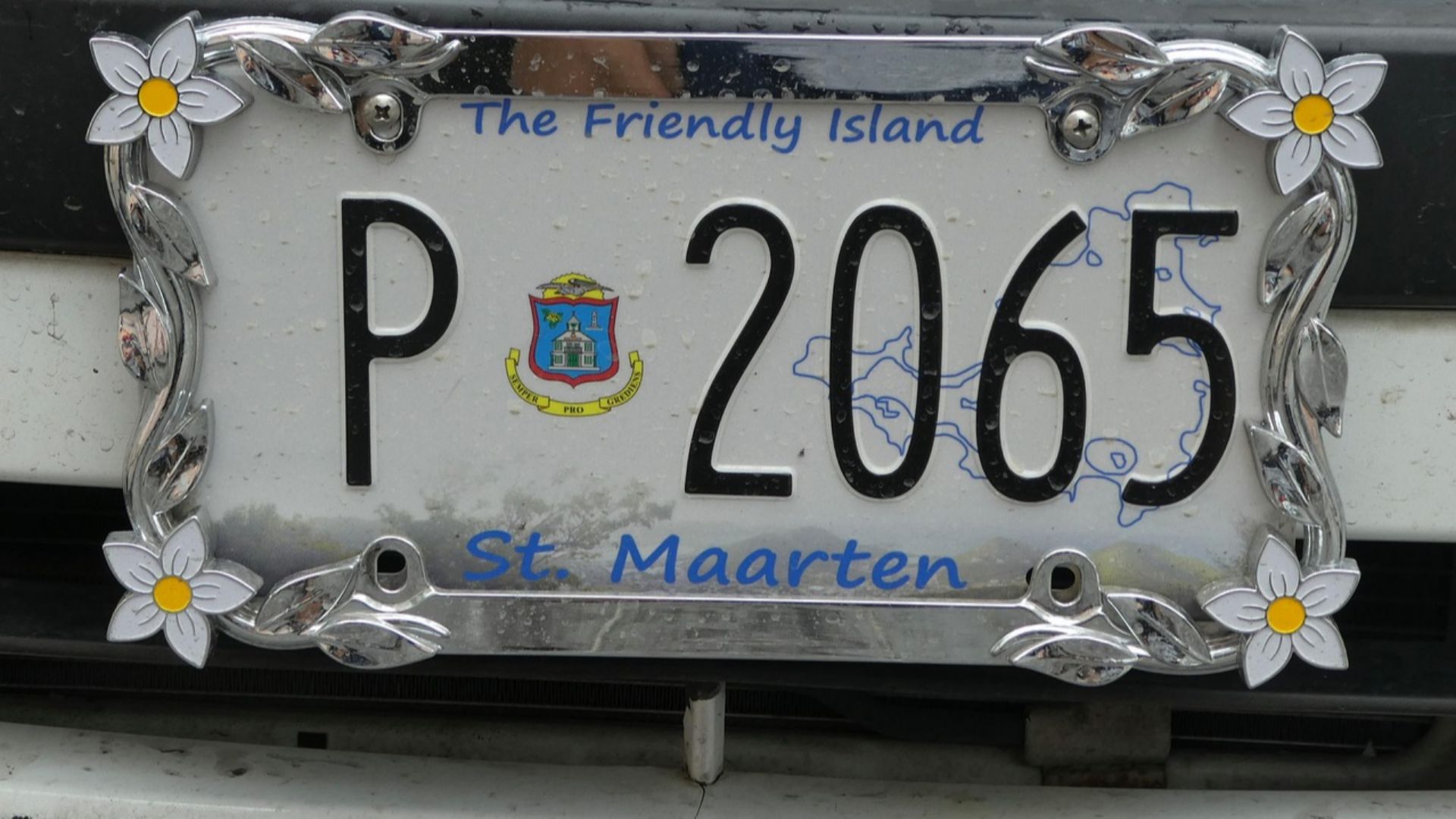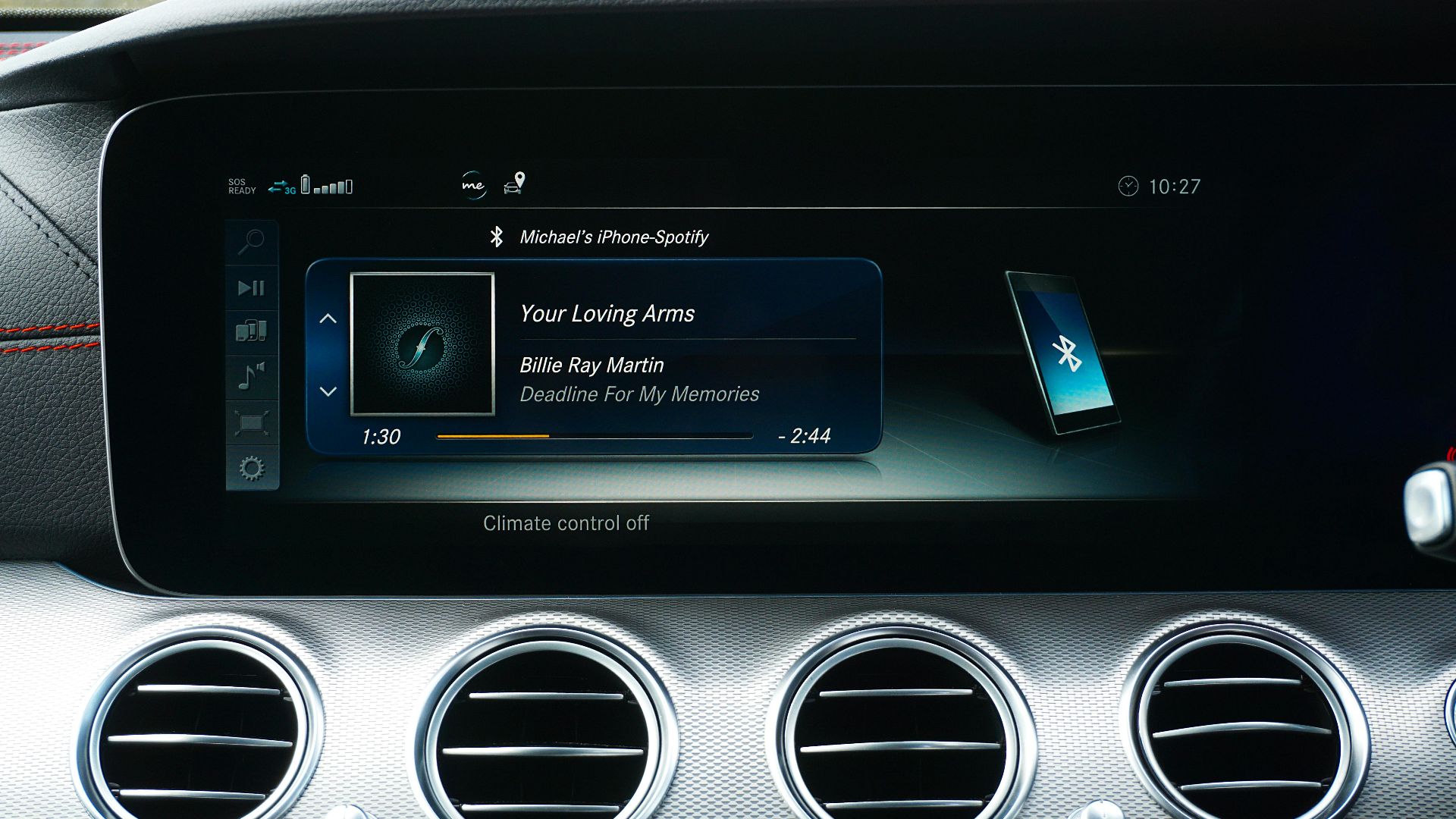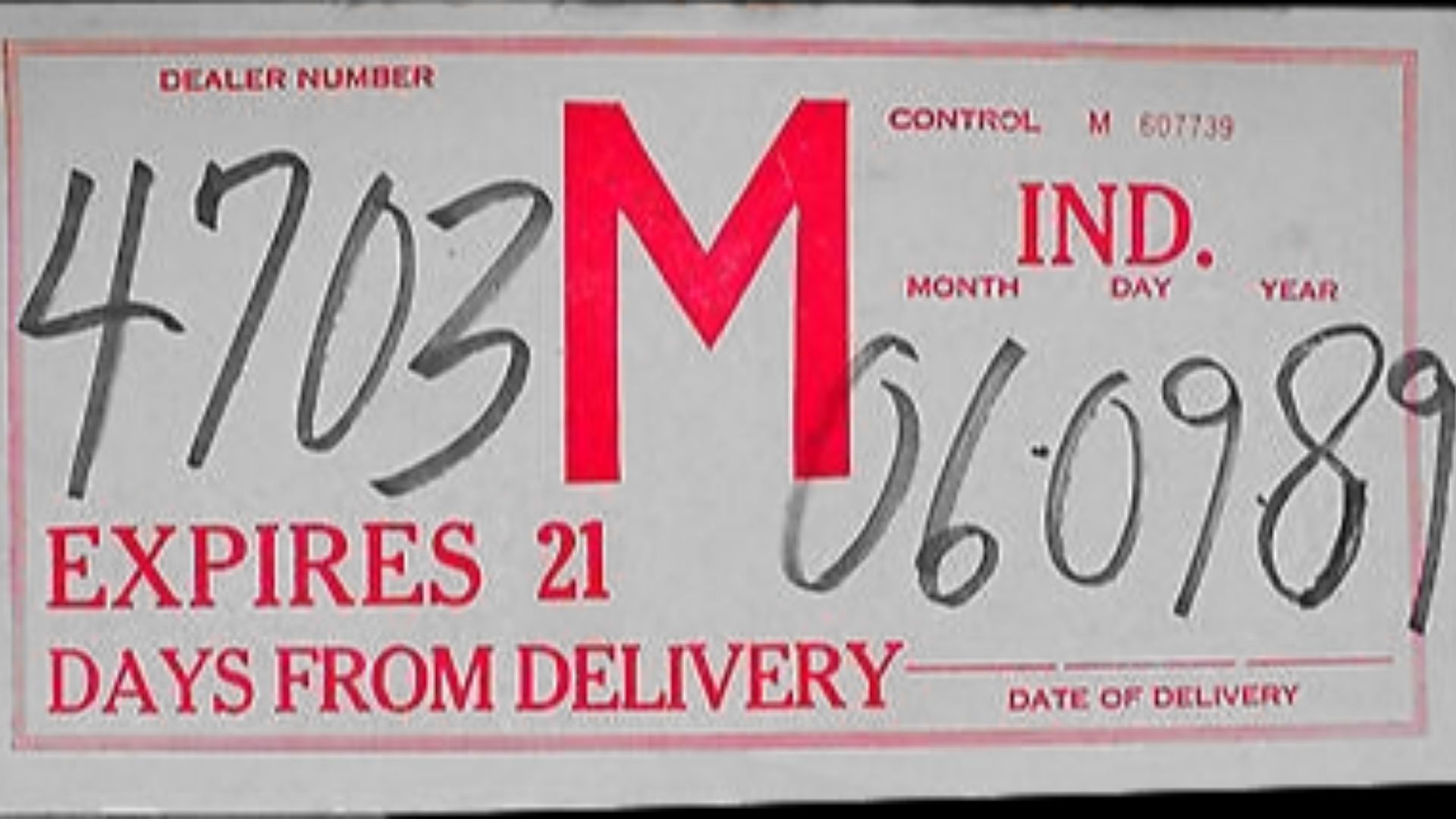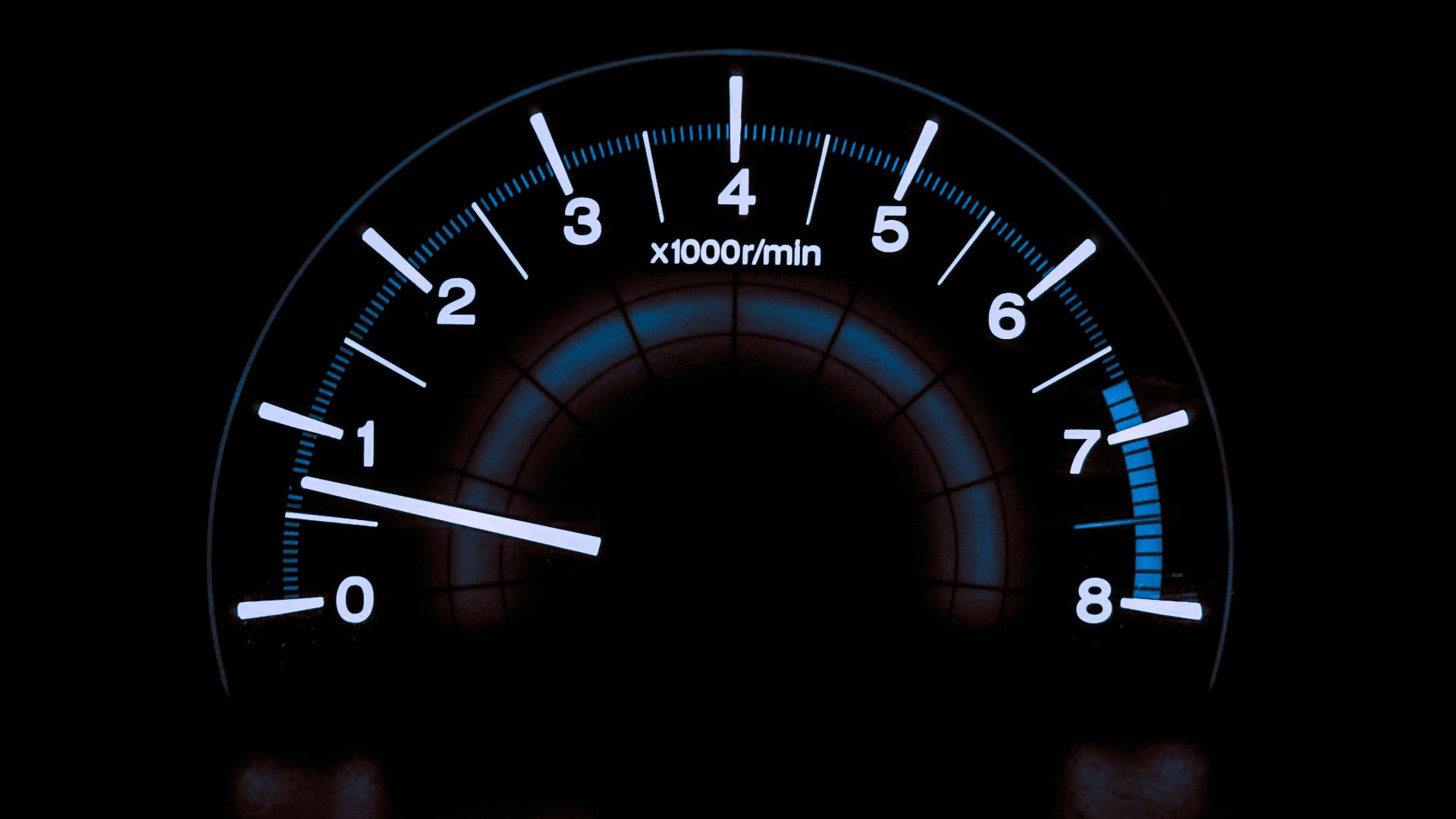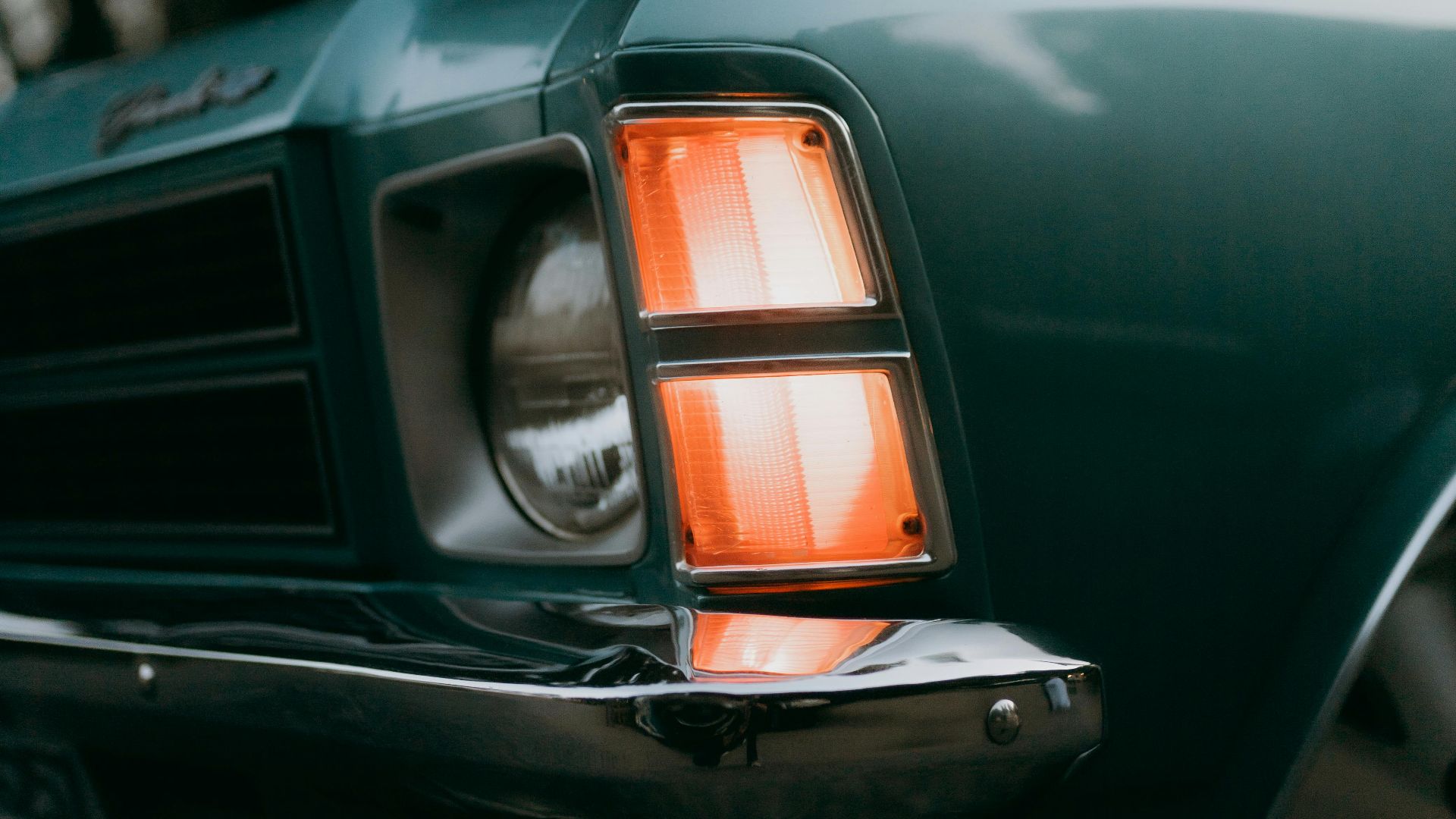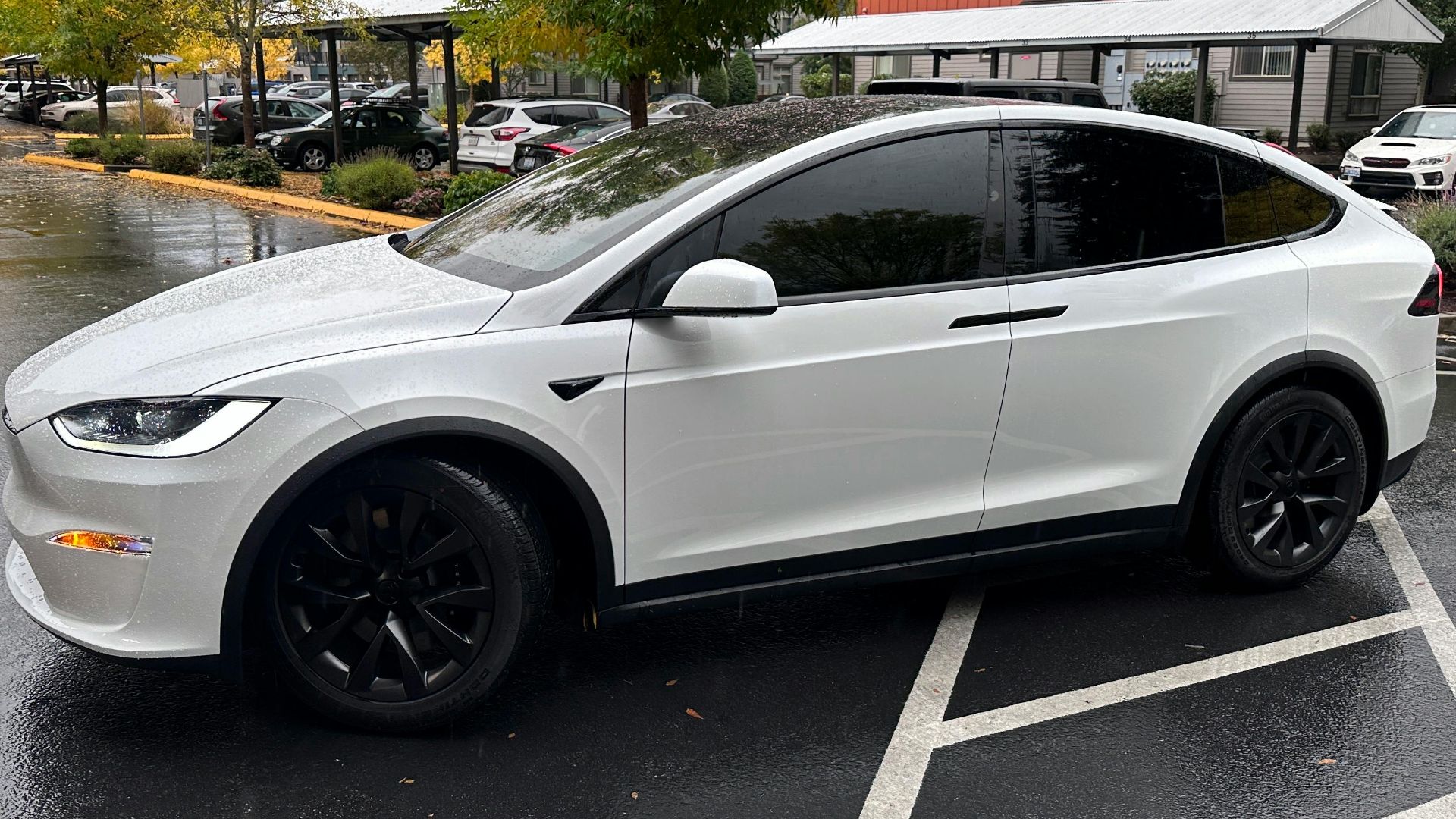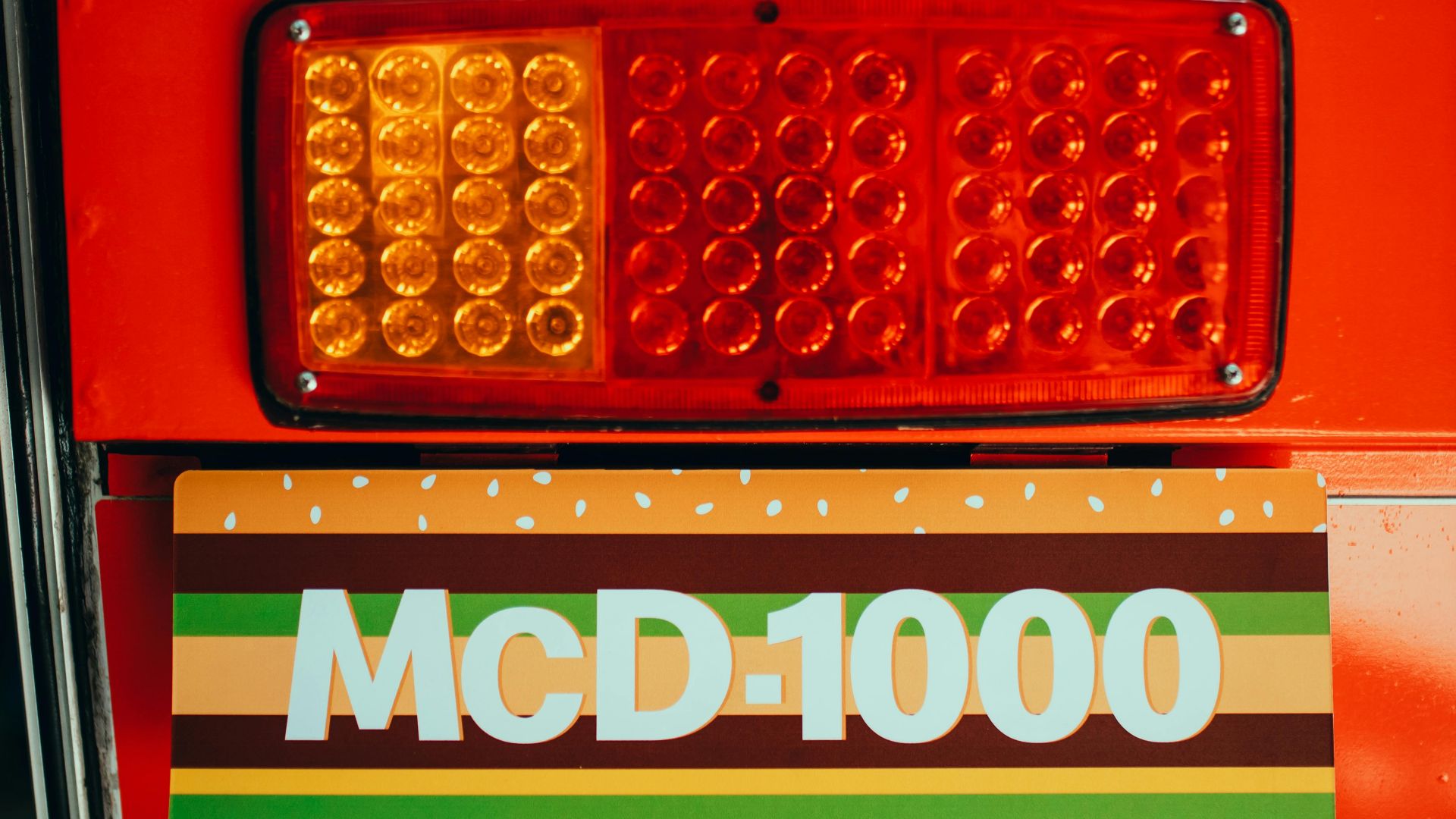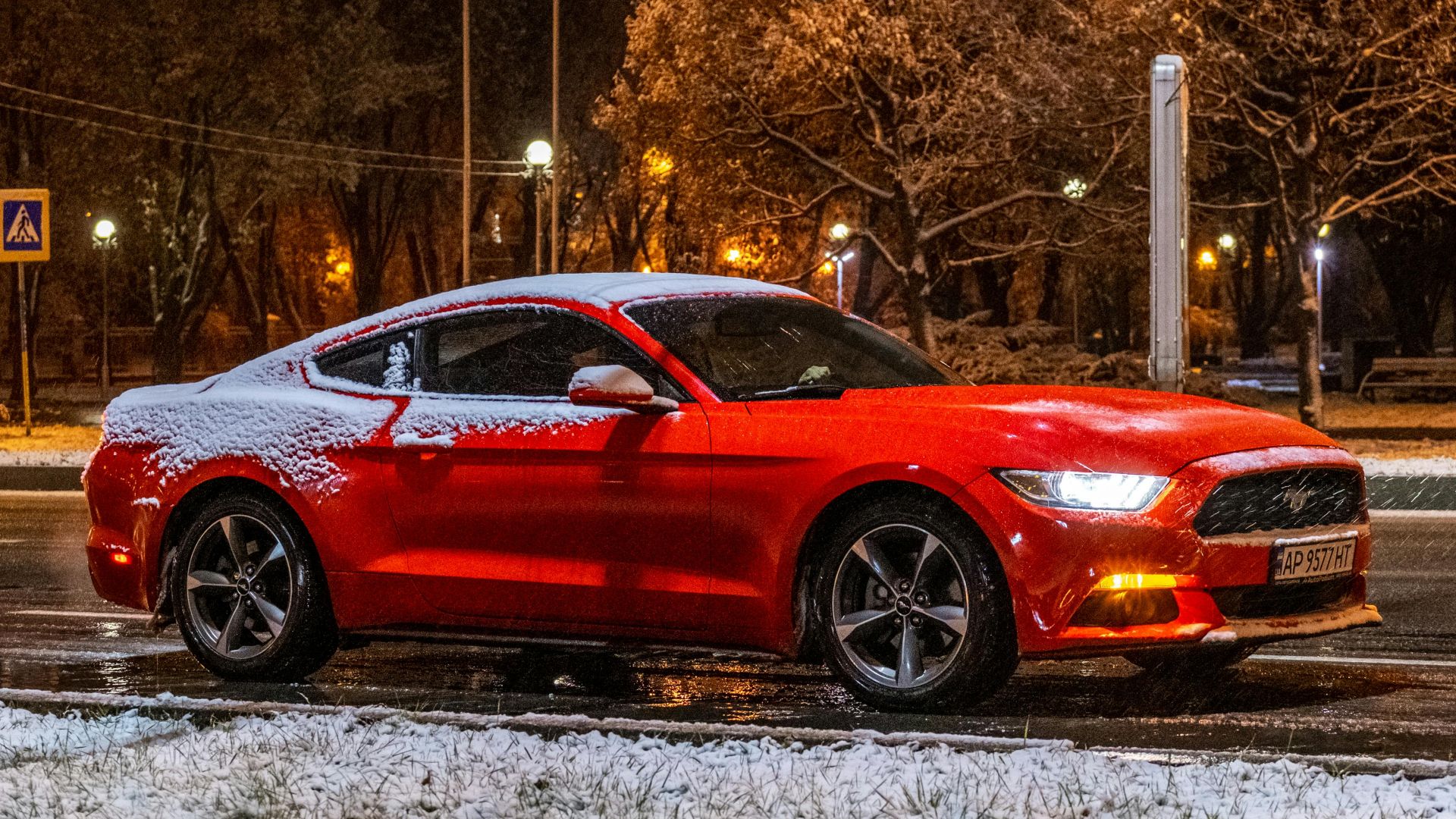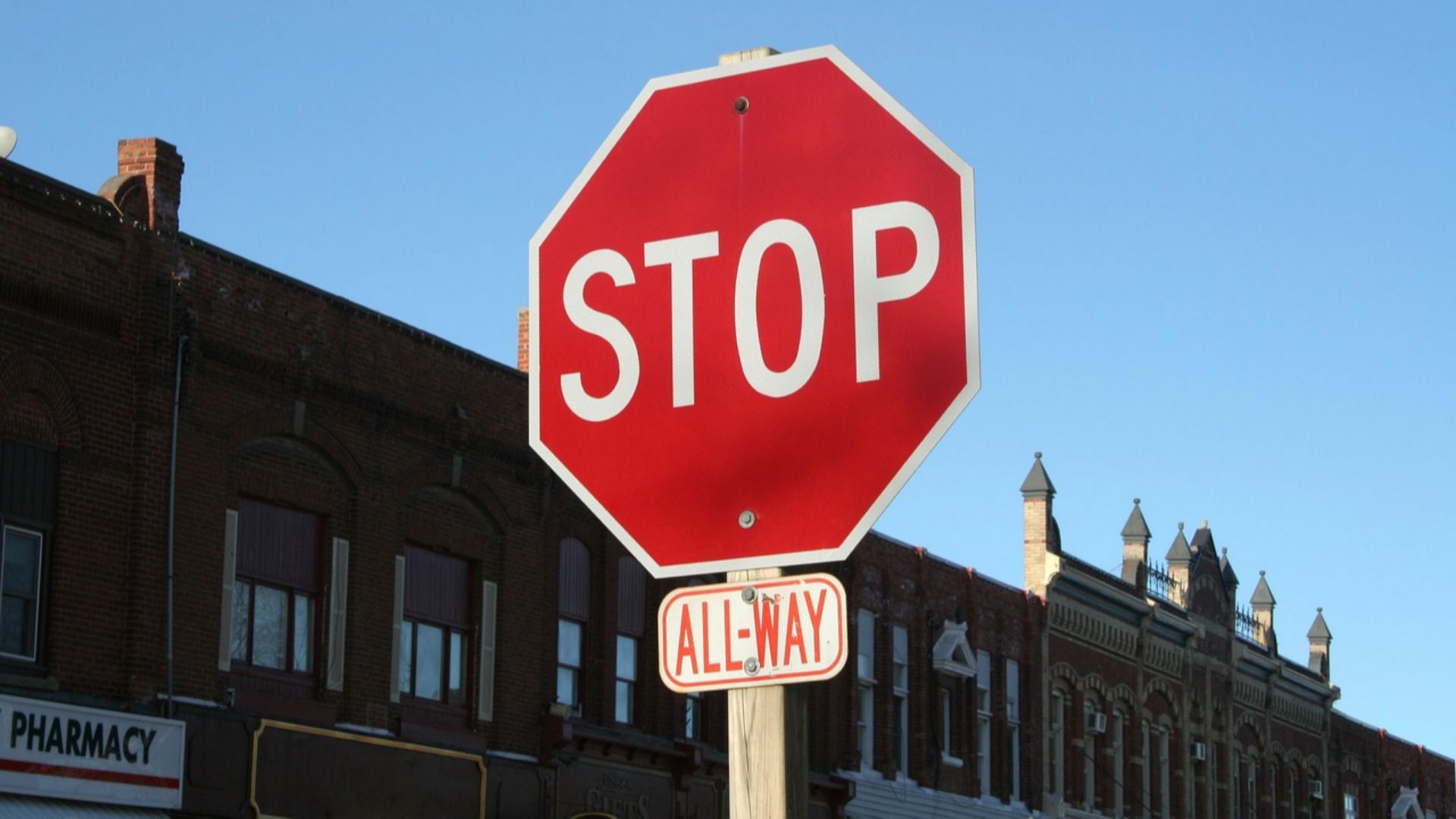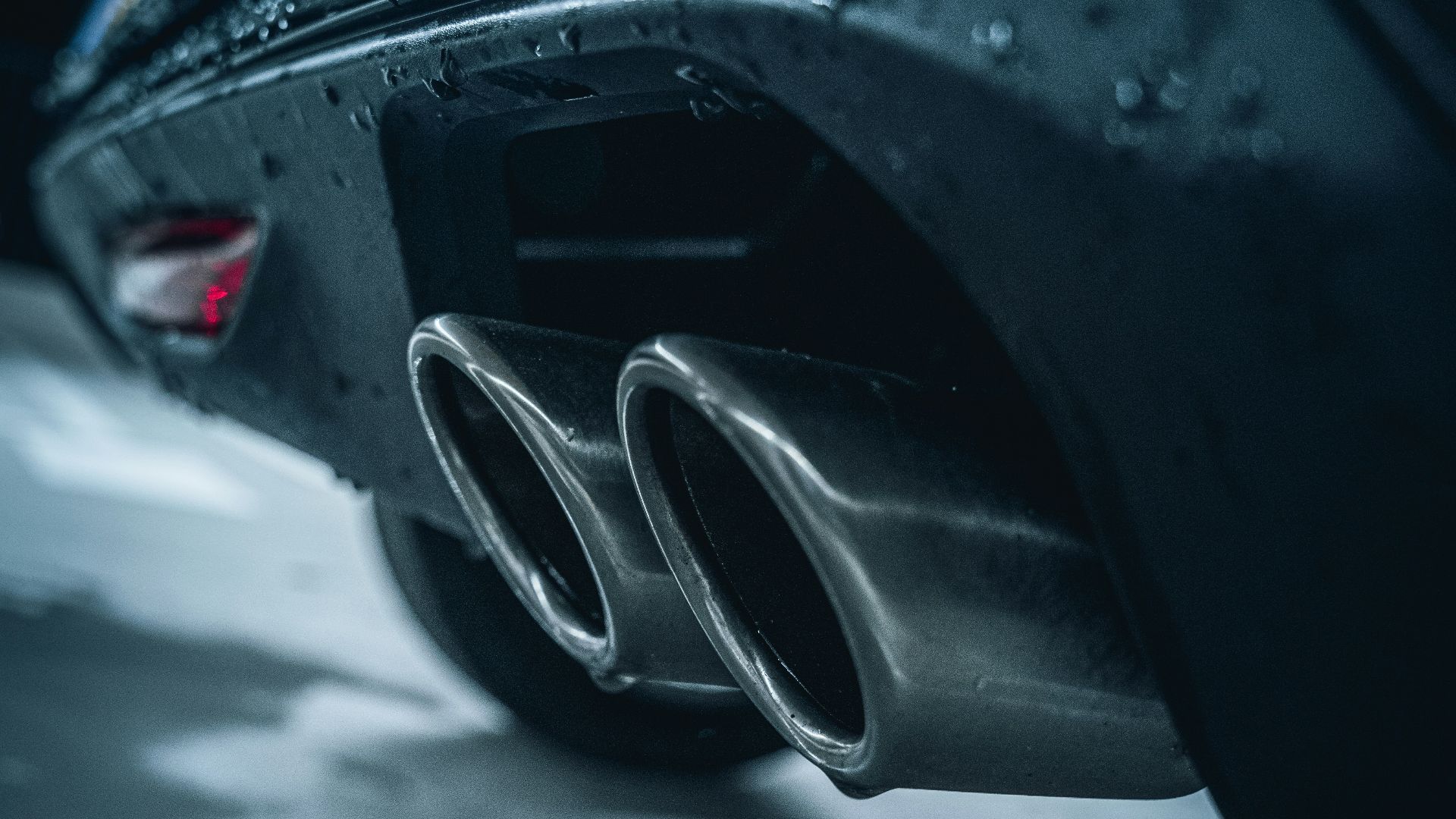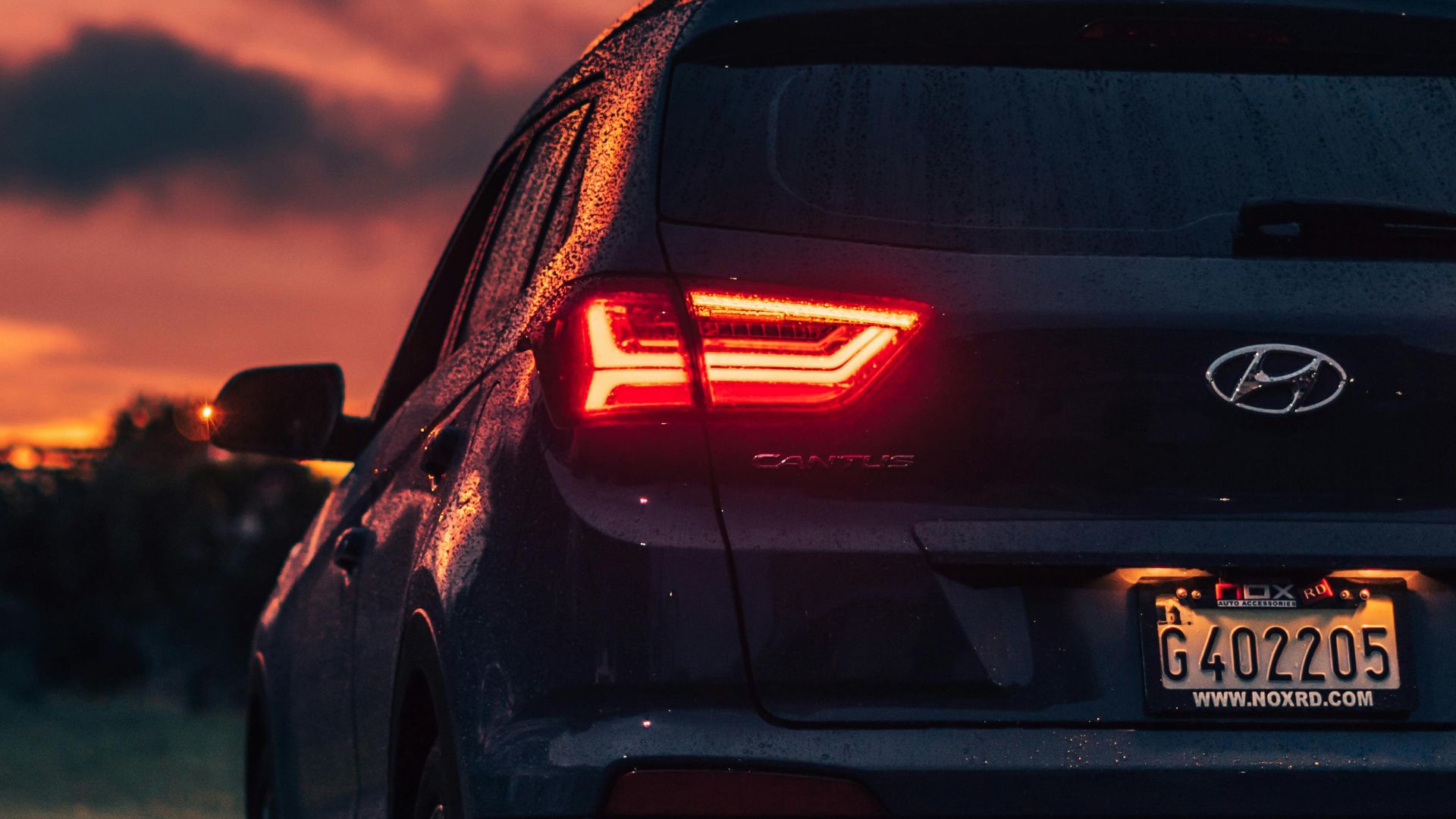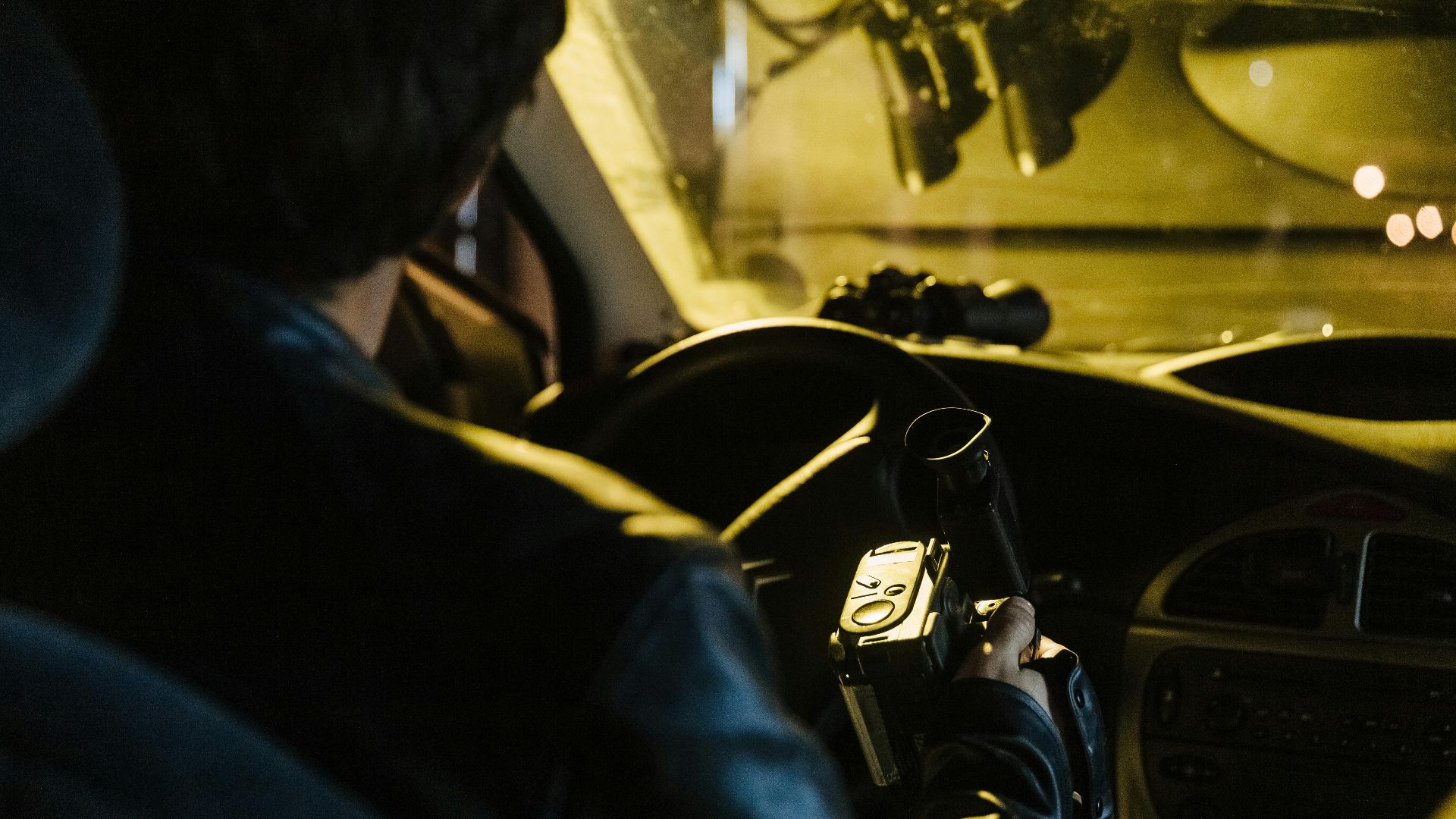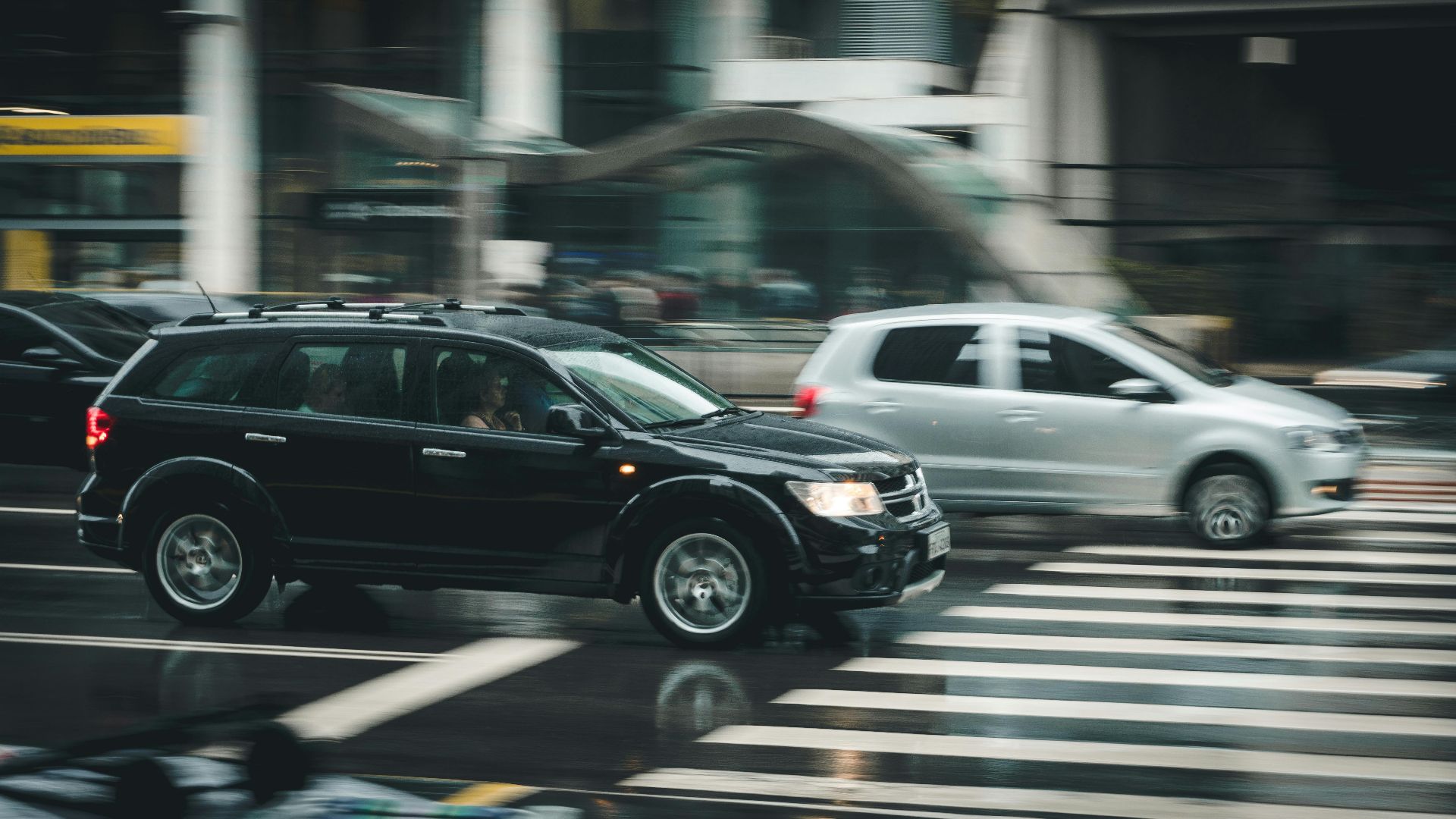Small Mistakes, Big Consequences
Not every pullover starts with reckless speed or a missed stop sign. Some violations fly so far under the radar that they seem harmless—until they aren’t. Yes, with dusty corners and quiet technicalities, your car could be full of tiny tripwires that can trigger flashing lights when you least expect it. Think you're in the clear? Read on to find out.
1. Obstructed Windshield
A cluttered dash, a snow-covered corner, or a foggy film that hasn't cleared yet—yes, that’s enough to get you stopped. Cops need to know you can see clearly. Even those parking receipts piled near the vent? They count. Visibility is everything, and your windshield is legally expected to stay spotless.
2. Rearview Mirror Accessories
Multiple states classify hanging items on mirrors—air fresheners, charms, IDs—as potential obstructions to a driver’s field of vision. Peripheral distraction impacts reaction time by milliseconds, which is statistically enough to increase crash risk. While enforcement varies, the regulation is rooted in cognitive and spatial interference research.
3. Dirty License Plate
Caked-on mud? Or a funky sticker covering a letter? That plate better be readable from a distance. Officers are trained to check plates from behind—and if yours looks like abstract art, you're probably getting flagged. Clean it like your driving record depends on it.
4. Excessive Muffler Smoke
Billowing white or gray smoke from your tailpipe is more than just bad engine vibes—it’s a moving violation. Many states cite it as “excessive visible emissions,” especially if it impairs visibility or causes concern for air quality. Maintenance isn't optional when it's making your car a pullover magnet.
5. Decorative Plate Frames That Obscure Info
If your plate frame proudly displays "Hot Rod Heaven" or your alma mater, that’s great. But if it obscures any part of the state name, registration tags, or numbers, you’re risking a ticket. It’s not personal—it’s about visibility.
6. Loud Music Heard From Afar
Volume matters. Some cities draw the line at 25 feet. Others say it just needs to be audible to a person outside the vehicle. Either way, if your car's sound system could double as a block party, don't be shocked when you get pulled over mid-chorus. Not all bangers are street-legal.
7. Expired Temporary Tags
Temporary tags are only valid for a short period, usually 30 to 90 days. Once that date passes, you’re legally driving with expired registration—even if you just forgot. Officers often check tags during routine patrols, and an outdated one makes your car a clear target for a traffic stop.
8. Driving Too Slowly
Slower isn't always safer. Clogging up the fast lane or crawling through green lights—officers view it as dangerous hesitation or impaired driving. It disrupts traffic, spikes frustration, and sometimes triggers worse. Speed limits have a floor, too. Go too slow, and you might still get the lights.
9. One Headlight Out
One missing headlight warps depth perception, signaling more than poor visibility—it screams neglect. Cops spot that asymmetry instantly. It's not just about your ability to see—it’s about being seen. With one headlight missing, your car looks confusing to other drivers.
10. Excessive Window Tint
Sure, you feel cool behind those limo-dark tints. But the officer walking up can’t see a thing—and that’s a problem. Some states even carry tint meters to test you on the spot. Unless you’re driving a Batmobile, you might want to check the legal limits.
11. License Plate Light Out
It’s late. You’re driving home, thinking about dinner. Everything seemed fine until those red and blue lights hit. Confused, you ask what you did. The officer leans in: “Your plate light’s out.” That tiny bulb you never knew existed matters.
12. Broken Or Missing Side Mirror
How do you change lanes without a side mirror? A prayer and a shoulder check? Mirrors aren’t optional accessories—they’re essential tools. Lose one, and you’re not just risking your safety. You’re signaling to everyone, including police, that your ride isn’t roadworthy.
13. Snow Or Ice On The Roof
Frozen rooftops aren’t just winter’s accessory—it’s a ticking disaster. As you speed up, chunks loosen, flying like icy grenades onto windshields behind you. That’s not just bad weather—it’s a preventable danger, and officers won’t hesitate to pull you over for it.
14. Incomplete Stops At Stop Signs
A “California roll” may sound like sushi, but on the road, it’s a ticket. It means you are just slowing down at a red light before you speed up again. The tires need to pause, not hover, and police notice the difference. Rolling through tells them you’re either rushing or testing fate.
15. Modified Exhaust Too Loud
Although decibel thresholds vary, the principle is clear—excessive engine noise violates most local codes. Modified exhaust systems often bypass legal noise limits, attracting attention. Plus, law enforcement uses sound meters or discretion to assess.
16. Brake Lights That Don’t Match
One red light, one white light—are you braking or reversing? Nobody knows. Mismatched brake lights confuse everyone—even the police. And guess who’s not interested in playing "guess the situation" on the freeway? That's right, the officers with flashing blue lights.
17. Driving With Interior Lights On
Driving with interior lights on may seem harmless, but it's distracting, especially at night. It can draw unnecessary attention, and officers aren't fans of seeing a glowing cabin. You're not filming a reality show—keep it dim and focused.
18. Covering The VIN Number
The Vehicle Identification Number (VIN) stamped near your windshield must remain visible. It's how law enforcement verifies ownership. Cover it—intentionally or accidentally—and you invite suspicion. Tinted covers, dashboard clutter, or even a reflective glare can all hide that 17-digit fingerprint.
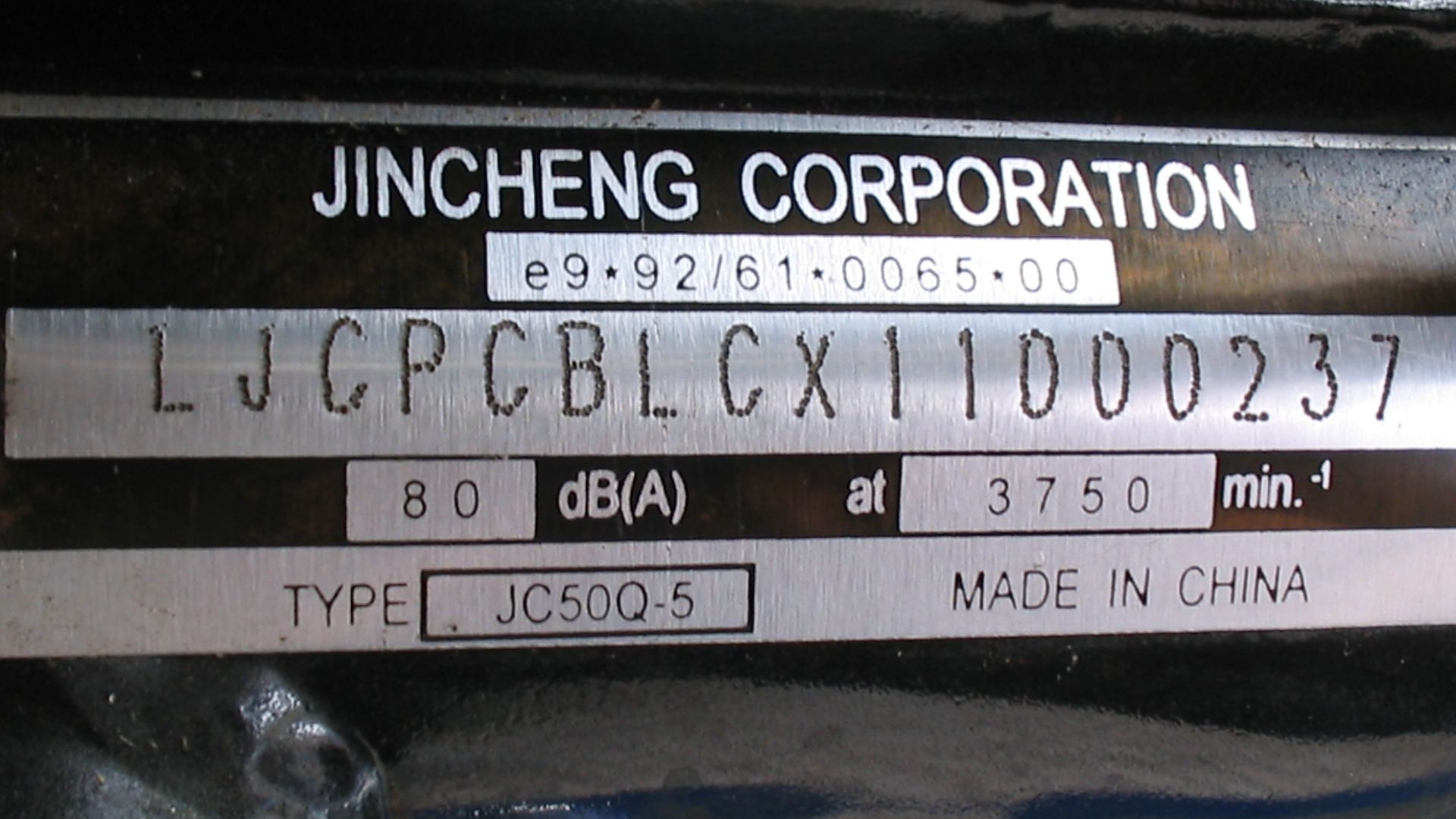 Michiel1972 at Dutch Wikipedia on Wikimedia
Michiel1972 at Dutch Wikipedia on Wikimedia
19. Unsecured Or Dangling Bumper
A bumper hanging by duct tape isn't quirky. It could drag, break off, or slam another vehicle. More than an ugly sight, a loose bumper suggests your car is falling apart. That kind of risk never slips past law enforcement.
20. Failure To Signal Lane Changes
Using your turn signal is the simplest way to say, “I know what I'm doing.” But sometimes it slips our mind, especially at times when it doesn't seem that important and nobody is around. But cops notice all your erratic lane shifts, especially without signals, and interpret it as aggressive, distracted, or impaired driving.



